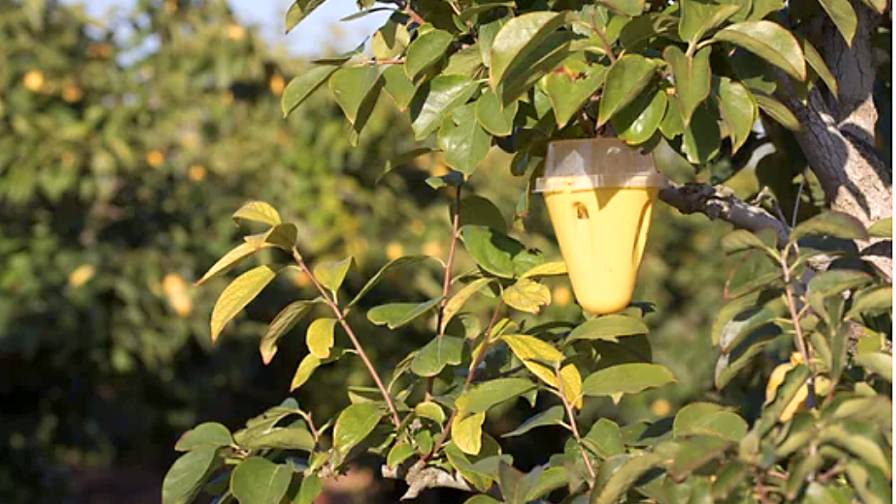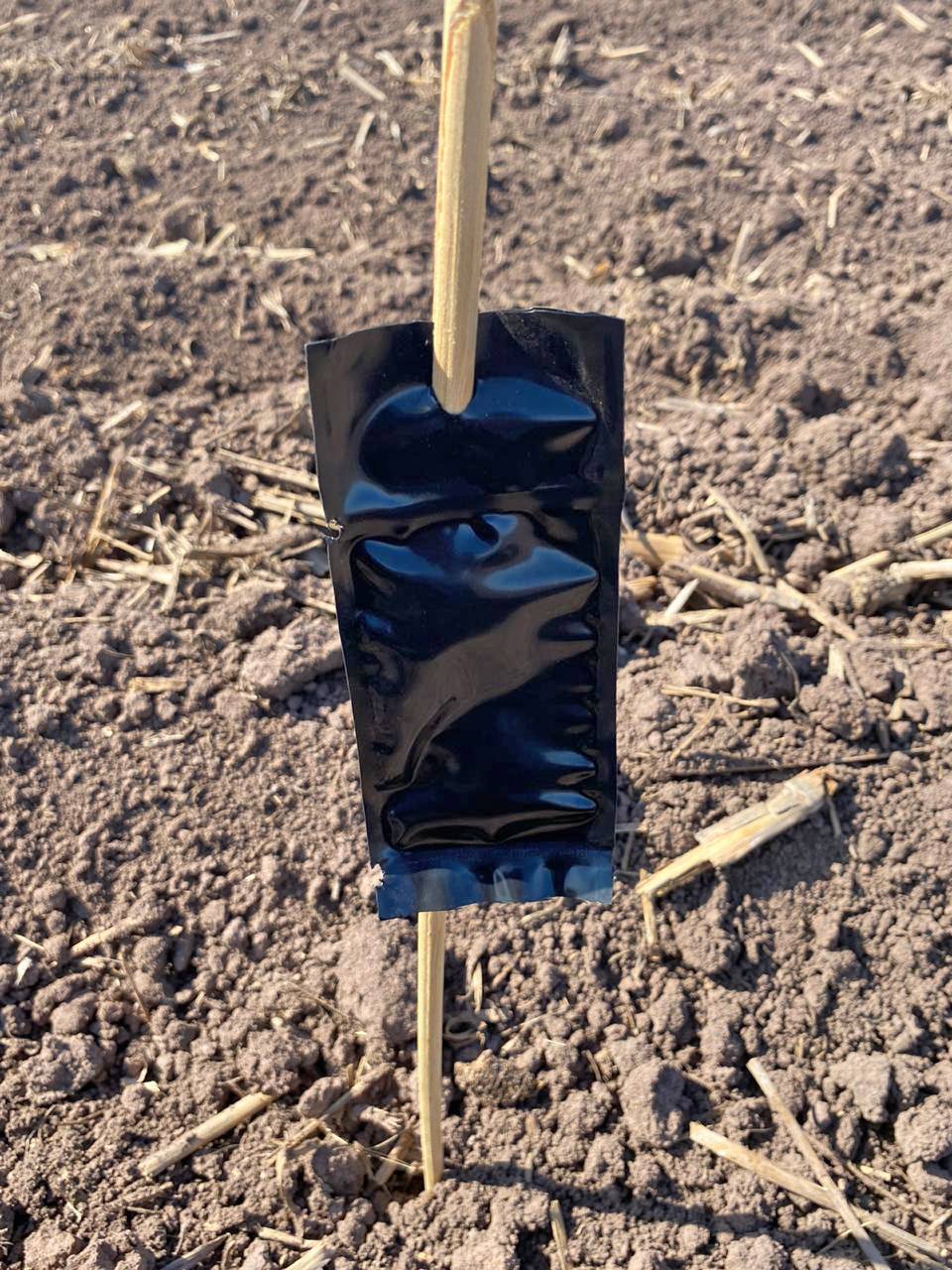Pheromones Are Making Inroads in Africa, Albeit Slowly
When U.S.-based agritech startup Provivi embarked on efficacy trials for its pheromone-based pest control solution Pherogen SPOFR in Kenya, one thing was clear. The level of knowledge, and usage, of pheromones not only in Kenya, but across Africa was quite low.
It is not hard to see why. Across Africa, use of conventional pesticides has been the widely used method of crop protection. In fact, the concept of integrated pest management is only starting to gain ground with the use of biological pest control products.
Notably, pheromones are not entirely new in Africa. Large-scale farmers in South Africa and export-oriented farmers in Kenya, for instance, are already using the natural compounds produced by insects to tackle the increasing problem of crop insect pests.
However, for small-scale farmers, pheromones are largely alien.
“Farming in Africa is subsistence in which case majority of farmers do not utilize modern farming practices,” says Dr. Ivan Rwomushana, Senior Scientist (Invasive Species Management) at the Centre for Agriculture and Biosciences International (CABI).
CABI collaborated with Provivi in undertaking wide-area trials and field demonstrations for Pherogen SPOFR, a product that is designed to fight the fall armyworm, an insect devastating maize crops across Africa.
Last year, Pherogen SPOFR got regulatory approval from Kenya’s Pest Control Products Board and now Provivi is preparing to launch commercially. “Our objective is to create technical and economic value for small-scale farmers,” states Andres Laignelet, Global Head, Corn Projects at Provivi.
For Africa, embracing pheromones is crucial. The continent is grappling with the challenge of making agriculture sustainable. In fact, going by the devastating impacts of climate change on the agricultural sector, Africa is facing a race against time in finding tangible solutions not only to deal with perennial problems, but also tackle emerging threats to the sector that are the livelihood for a majority of the population.
Crop insect pests have been a constant risk to agriculture. The threat is worsening with climate change causing the proliferation of new species. The situation is bound to get severe with research showing that climate change-induced floods, droughts, and high temperatures are providing optimal conditions for pests and diseases to flourish.
According to CABI, crop losses in African countries due to insect pests are estimated at 49% of the expected total crop yield annually. In some cases, the losses could be worse, including total loss of a crop season.
The losses instigated by fall armyworm, for instance, are extremely severe. In some 12 maize producing countries in sub-Saharan Africa, the pest has the potential to cause losses of up to 17.7 million tonnes, translating into revenue loss of almost $5 billion annually.

Martin van Niekerk, Technical and Commercial Director at South African firm Insect Science (Pty) Ltd.
“Pheromone or biological products are the only sustainable way to farm for the future in Africa,” says Martin van Niekerk, Technical and Commercial Director at South African firm Insect Science (Pty) Ltd.
To ensure that African farmers, particularly small-scale farmers, embrace pheromone-based solutions, companies like Provivi, Insect Science, Dudutech, Kenya Biologics, Koppert, among others are introducing the products in the continent.
Consensus abounds that although currently the level of knowledge and usage of pheromones is extremely low, an upsurge, even explosion in usage, could be witnessed in the near future.
This is because farmers are facing an ever-increasing pressure to reduce reliance on synthetic pesticides due to their negative effects. These include increased resistance, damage to the environment, damage on non-target organisms, among others.

Thomas Mason, Managing Director at Kenya-based Dudutech.
“Pheromones are a useful tool for integrated pest management programs aimed at reducing overreliance on synthetic pesticides,” explains Thomas Mason, Managing Director at Kenya-based Dudutech.
For greater acceptance and usage, African farmers must start with the understanding of pheromones and their impacts on crop protection. Being non-toxic, pheromones are with no doubt powerful solutions for crop insect pests control while avoiding the negative impacts on environment and biodiversity.
The fact that pheromones are naturally produced by insects makes them highly sustainable as they are insect-specific.
Though pheromone-based solution manufacturers and distributors reckon that small-scale farmers are somehow hard to convince to adopt new technologies that they least understand, the level of acceptance is increasing albeit at a slow pace.
“For the smallholder farmers, the usage is minimal due to limited knowledge, perceived high cost, and also the fact that there is no huge demand for pesticide-free produce by local consumers,” Mason says.
The task facing manufacturers and distributors of pheromones in Africa is clear. Apart from disseminating knowledge, there is a need to invest in the production of different types of pheromones to manage the wide variety of pests. This is because African farmers are faced with a myriad of different pests due to the tropical nature of the continent’s climate.
Notably, the current slow adoption of pheromones might not offer incentives for manufacturers and distributors because the payback of huge investments in production and R&D facilities are bound to be insignificant.
In the current state, economies of scale dictate that pheromone products will find it difficult to compete against conventional molecules particularly those whose patents have expired and are now being produced cheaply in countries like India and China.
“With time however, this is likely to change with increased demand for pheromone products,” notes CABI’s Dr. Rwomushana.
Considering that pheromone-based products are not cheap, manufacturers must find methods to make them more affordable. One way, according to van Niekerk, is small-scale packaging for small-scale farmers to suit their farm size and their pocket. “That is the way we can bring the new technology to them,” he says.
The fact that pheromones can work in small farms make small packaging viable.
Trials have shown that application of pheromones amongst many small-scale producers within a certain geographical area can achieve the desired results of causing sufficient mating disruptions.
Another entry barrier that needs to be addressed is the registration process. Currently, manufacturers must endure long processes of wide-area trials and field demonstrations on efficacy. In some countries, the trials can take up to six years.
Despite the challenges facing pheromones in Africa, the opportunities in the continent are substantial.
The fact that climate change is instigating the proliferation of pest population dynamics means the continent needs sustainable solutions to prevent and control the ever-increasing pest populations.
Besides, the growing challenge of increased pesticide resistance and market restrictions including bans on chemical pesticides is bound to force farmers to seek alternative pest control measures.
Also, for manufacturers, the similarities in weather patterns in most countries offers the opportunities of opening distribution channels in different markets. Insect Science, for instance, is already in seven countries while Provivi intends to use Kenya as a launching ground before exploring opportunities in other countries.







